The deafening uproar after the Nirbhaya case shook the country to the core. People from around the world protested against the gruesome rape of a young girl who was merely returning home after watching a movie with a friend.
Vigils were held, protests were organized and India seemed to have finally woken up from its slumber.
The horrible incident set in motion a lot of changes in the country and within its legal system. Even the juvenile laws got amended. However, these changes were all made from the victim’s perspective. No amendment was made and no law was passed for the rehabilitation of the perpetrators.
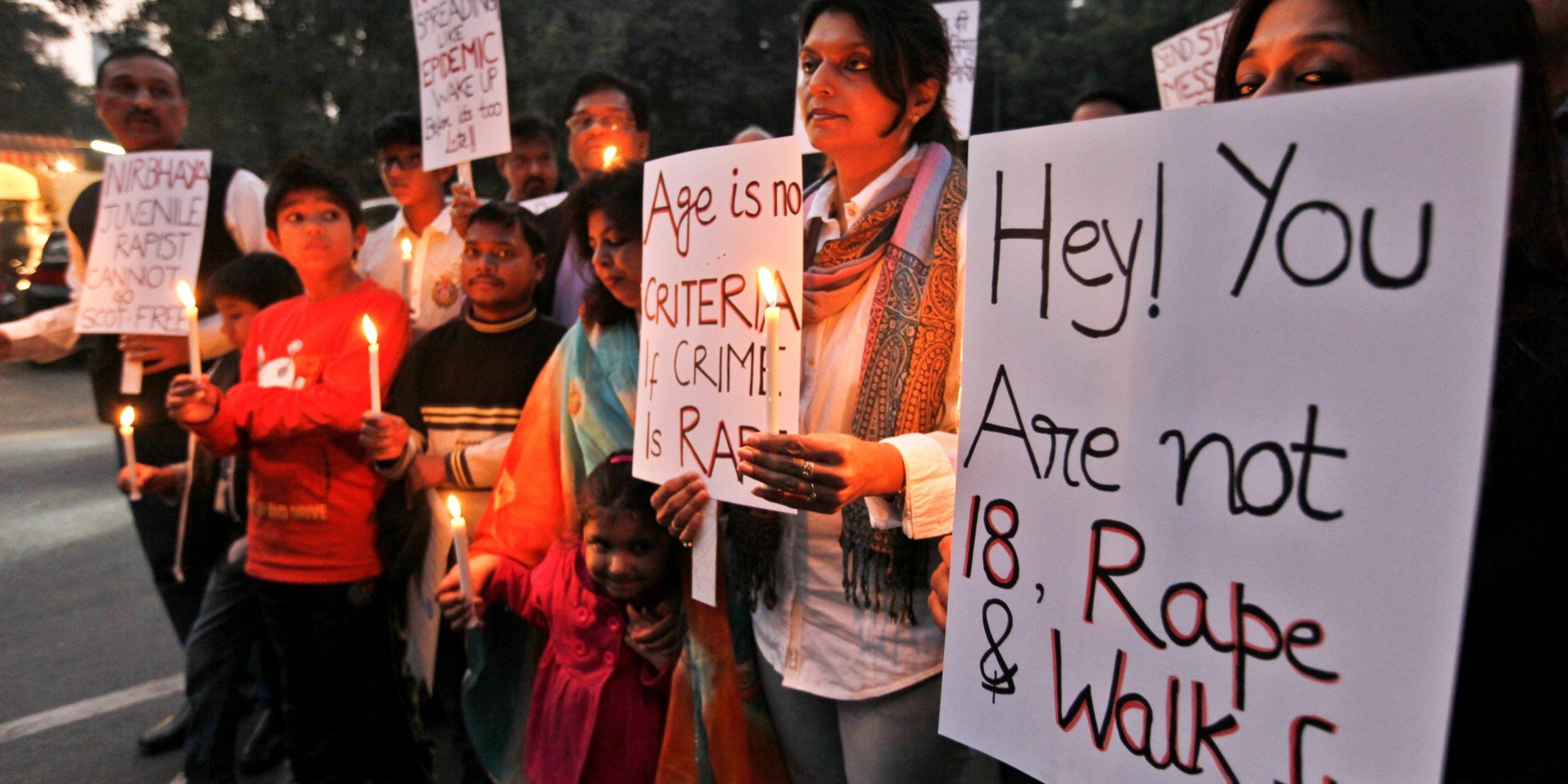
There was barely any research available in India to understand the offender’s perspective. That is when Madhumita Pandey’s research came into light, where she interviewed 100 rape offenders in Delhi’s Tihar Jail. What prompted her to conduct the research? Well, the same question we’ve been asking for ages now:
“Why do men rape? Why do they commit such a heinous crime?”
We got in touch with Sarthak Rathod who had researched on the same subject to help us get more clarity. Currently pursuing his PhD from the Raksha Shakti University, Sarthak conducted a research with 50 rape convicts who are serving their sentence in the Sabarmati Central Prison.
Through his research, he aims to understand the victim-offender relationship, the perpetrator’s perspective and the factors that lead up to rape crimes.
Additionally, his research also gives insights into the steps we can take to curb rape crimes.
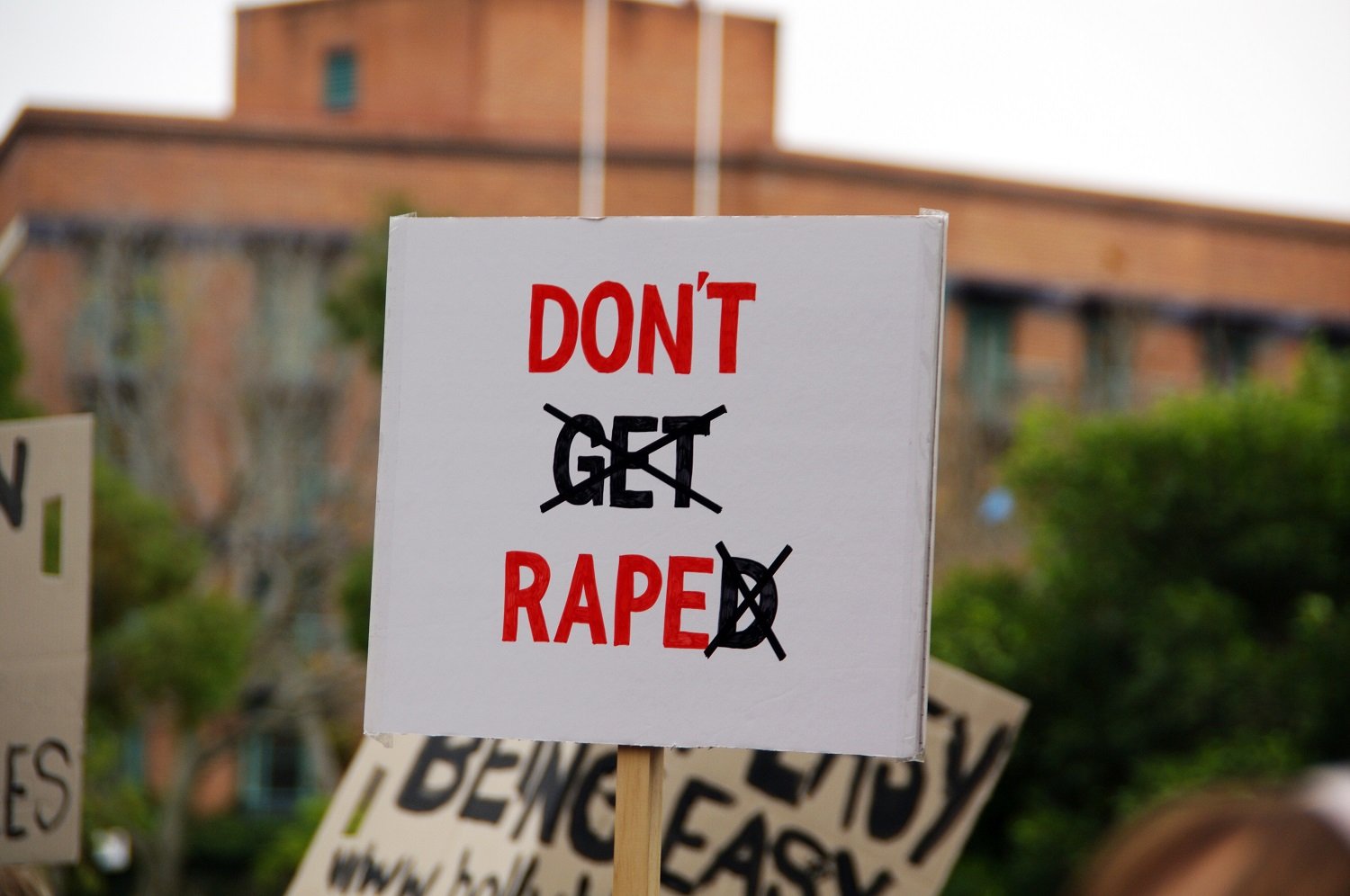
Speaking to ScoopWhoop, he said some of the people he interviewed were wrongly convicted and most of these men were victims of fabricated lies in elopement cases.
In the course of the research, he found that often, when a boy and a girl elope, they engage in consensual sex. However, when the family finds out, the girl is pressurized into stating that she was raped by the guy. If the girl happens to be a minor (which a man is often unaware of), the conviction takes place anyway. And if the girl claims that she was raped in front of a magistrate, it is assumed that she is telling the truth.
According to the research, patriarchy plays a very important role in the man-woman equation and therefore, contributes significantly to the rape culture.
A person’s upbringing, the socialization process they went through as kids, their education, everything contributes to the kind of person that one becomes as one steps into adulthood and the realm of sexuality and sexual awareness.
For instance, the story of one of the participants in the research sheds light on how incorrect socialization and gross misinterpretation of the man-woman dynamics can lead up to a crime as heinous as rape.
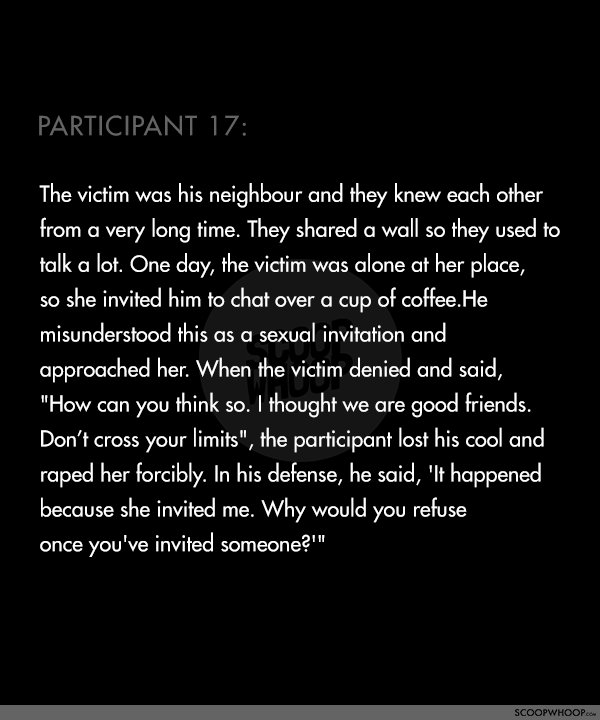
In his research, Sarthak also tried to understand the perpetrator’s perspective through the Victim Precipitation Theory. According to the theory, a victim often contributes to his or her own victimization.
In criminology, clothes, or more precisely what the victim was wearing, can be a contributing factor to his or her victimization. But it does not mean that a woman should be slut-shamed or that the rape happened because of what she was wearing.
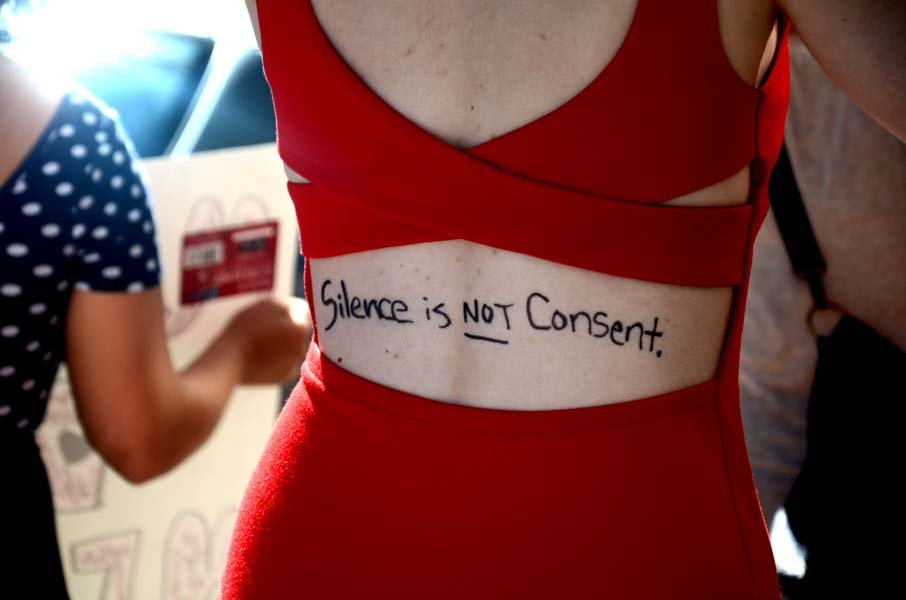
In fact, the Victim Precipitation theory stresses on the fact that the fault lies in how she was perceived by the man based on what she was wearing, who she was with, what she was doing, etc. It is how the offender interpreted the victim’s behavior. However, this does not justify the actions of the offender.
The story of one of the research subjects can be used as a prime example to support this theory.
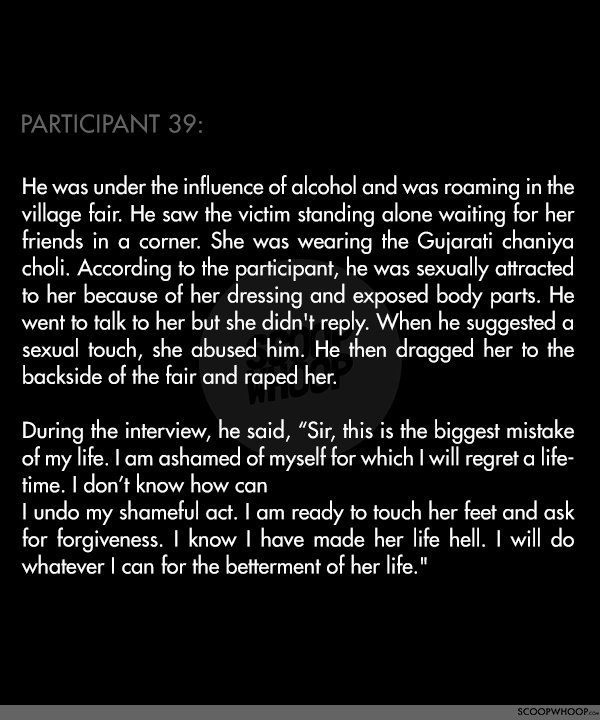
If we can just start discussing and talking about things, a lot of these crimes would never happen. The concept of consent, sex and sexuality, how a woman should be treated and respected are all topics that need widespread awareness and a much larger discussion.
Just like we’re educating our kids about good touch and bad touch, we also need to tell them that a woman’s body is her own and she can wear whatever she wants. It’s a thought that needs to percolate down to every stratum of the society because a crime such as rape does not discriminate what class you belong to. It affects both the young and the old and the rich and the poor, and the only reprieve is to make people more aware.
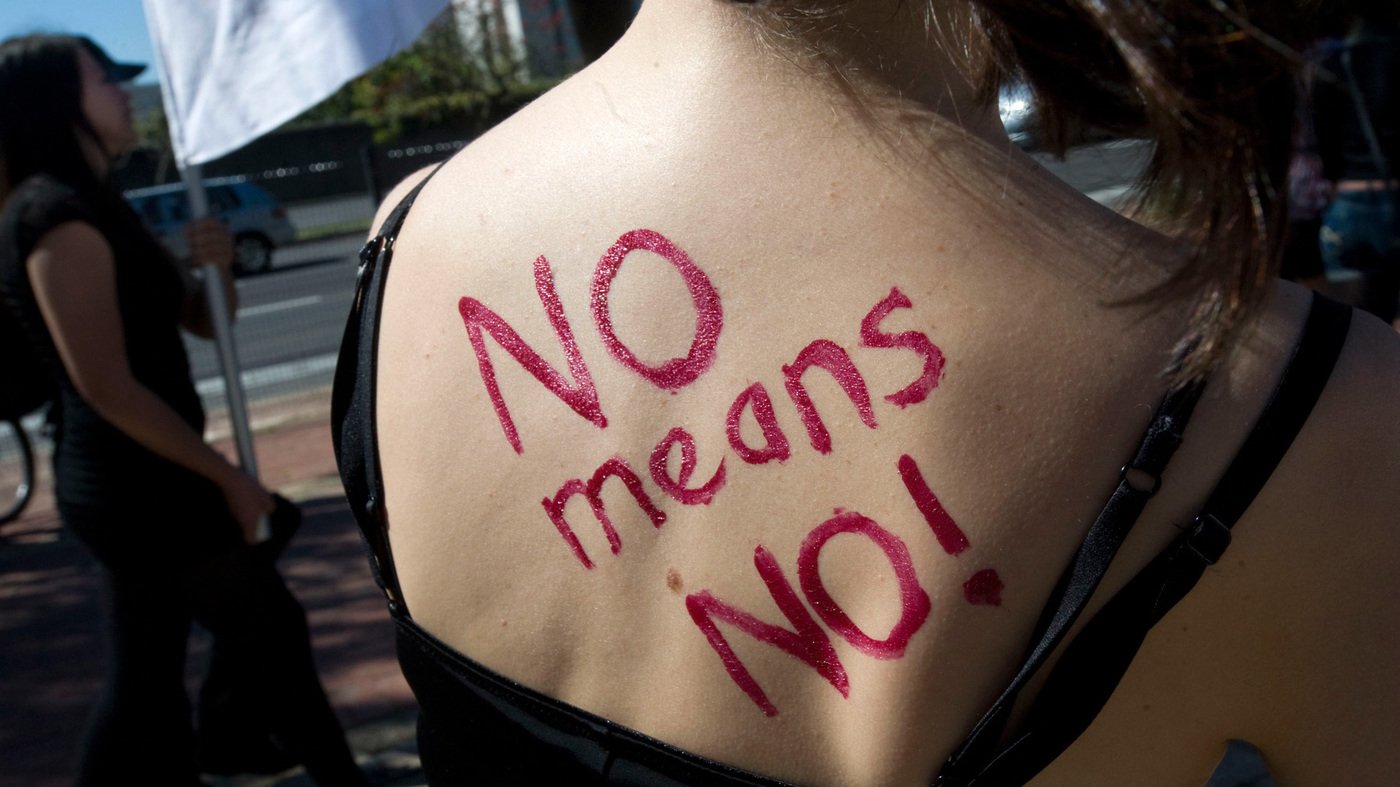
Another important point that this research seeks to make is that proper care and rehabilitation of an offender is possible. And that it is by far the right course of action.
A lot of times, these offenders turn out to be victims themselves. They might have been abused when they were young or they might have known someone who was abused. In such cases, their own victimization plays into the psyche and convinces them that victimization of another is the best form of revenge for the wrong done to them.
While this is a rather normal response to sexual abuse, it is not something that we can’t deal with. With proper sessions with a psychologist and necessary care, these problems can be taken care of.
However, does it ensure that the offender might not rape again? No.
But it does make way for a much humane way of dealing with a crime as big as this. And, is it not better to get to the root of the problem instead of weeding it out one by one?
However, there are cases where a man was too far gone for rehabilitation. Sarthak recounts the story of a certain man who was, in his opinion, beyond redemption.
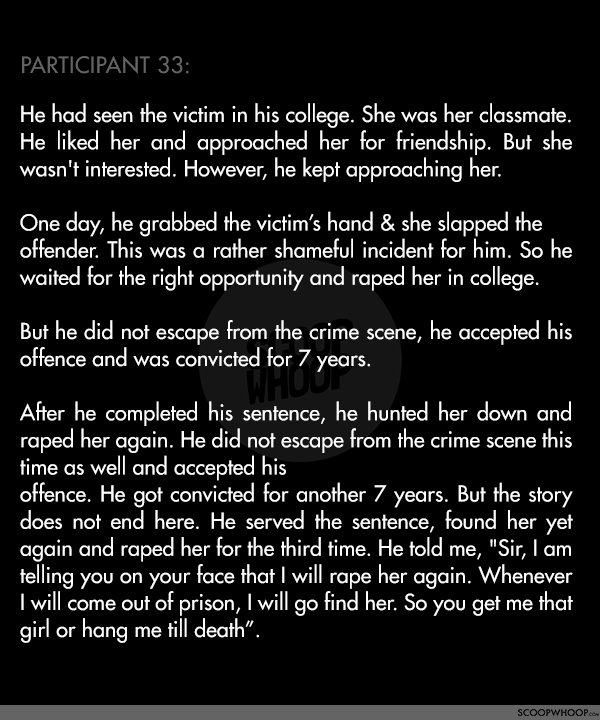
However, if his rehabilitation process was set in motion after his first crime, he might have been saved.
With proper care, education and regular sessions with psychologists, Sarthak believes that it is possible to save and rehabilitate these people. He also believes that a lot of these men, after their rehabilitation process is through, might even go on to become advocates for women’s rights.
When we asked him how many among the 50 people he interviewed showed remorse for their crime, he said:
“Almost 50% of the offenders at the Sabarmati Central Prison are apologetic for what they did. If given a chance, they want to see their victims and ask their forgiveness.”
Since he’s one of the few people working from the perpetrator’s perspective, we asked him what he thinks of capital punishment for a rape crime? And this is what he said:
“Even Mahatma Gandhi said, ‘Hate the sin, not the sinner. If capital punishment was to be the ultimate punishment for a crime such as rape, it would have stopped happening a long time ago. Most people are aware that if they rape someone, they will be sentenced to 7 years in prison. This punishment hasn’t stopped rapes from happening. It means that the punishment given is not the most effective one. And even if we give capital punishment, it wouldn’t be effective because we might be able to kill the man who committed the crime but we won’t be able to kill the thought that made him commit the crime in the first place.”
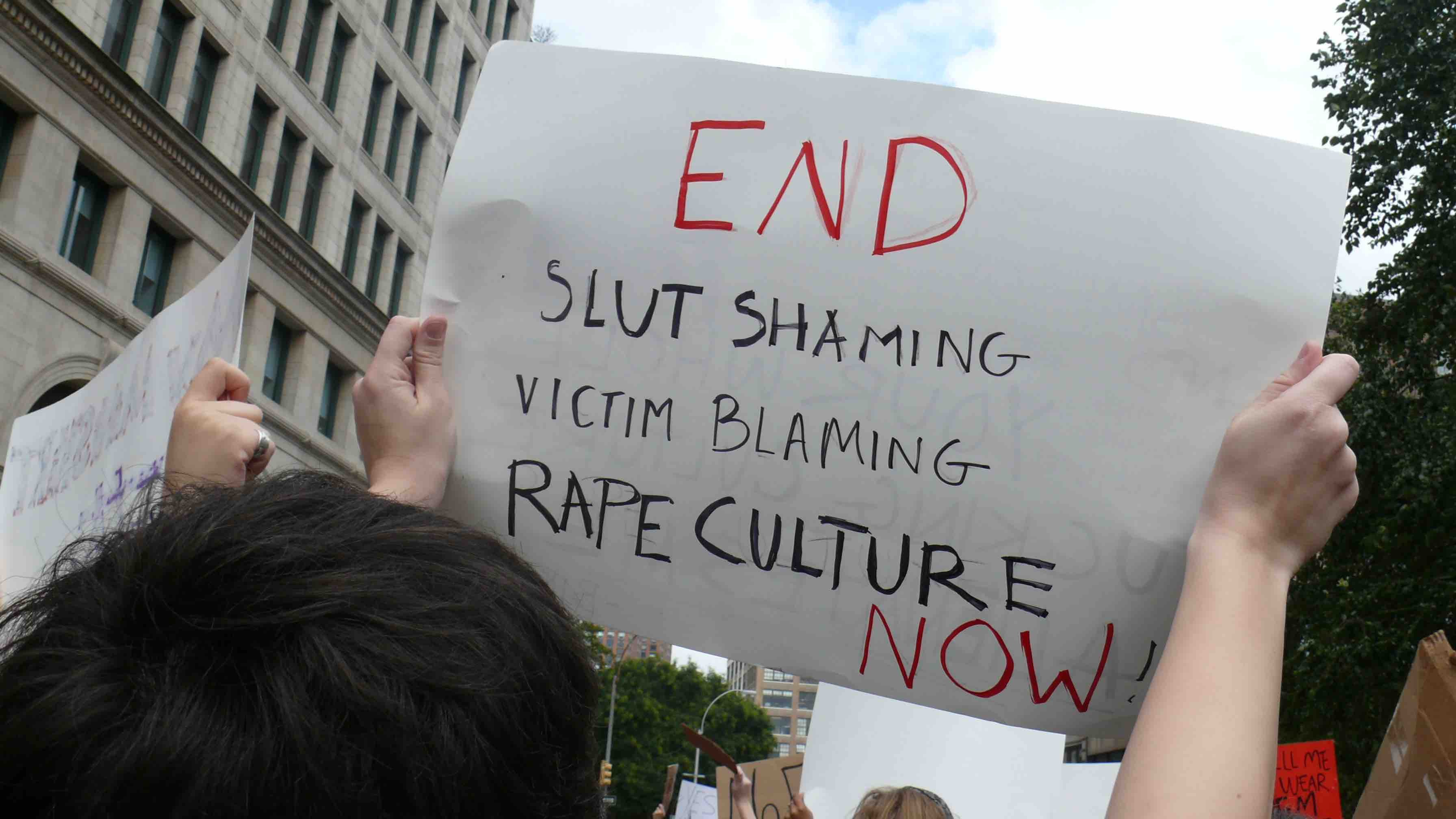
As a society, we need to understand that rape, like all other crimes, may have varied and much more complicated reasons. The findings of the study do not mean to justify the actions of a rapist or resort to victim-blaming. It’s merely a way to find out the reasons why such crimes take place and seek a more permanent solution on how to prevent these crimes from happening.
Pushing for capital punishment and more stringent laws is not the way forward. Rehabilitation and rebuilding a person is the right course of action. It might not be the ideal or the easiest way, but it is certainly the course of action that a humane society should resort to.

















